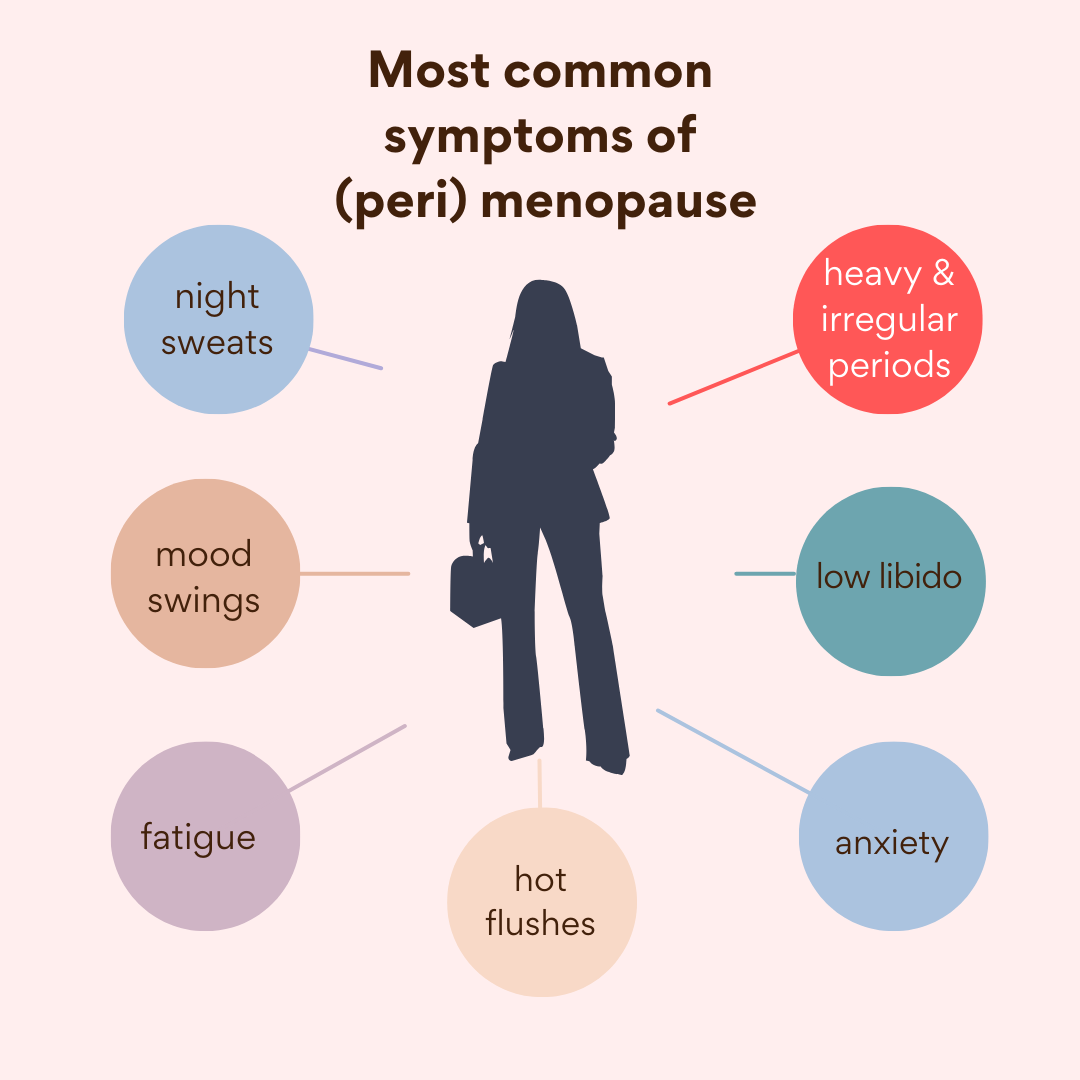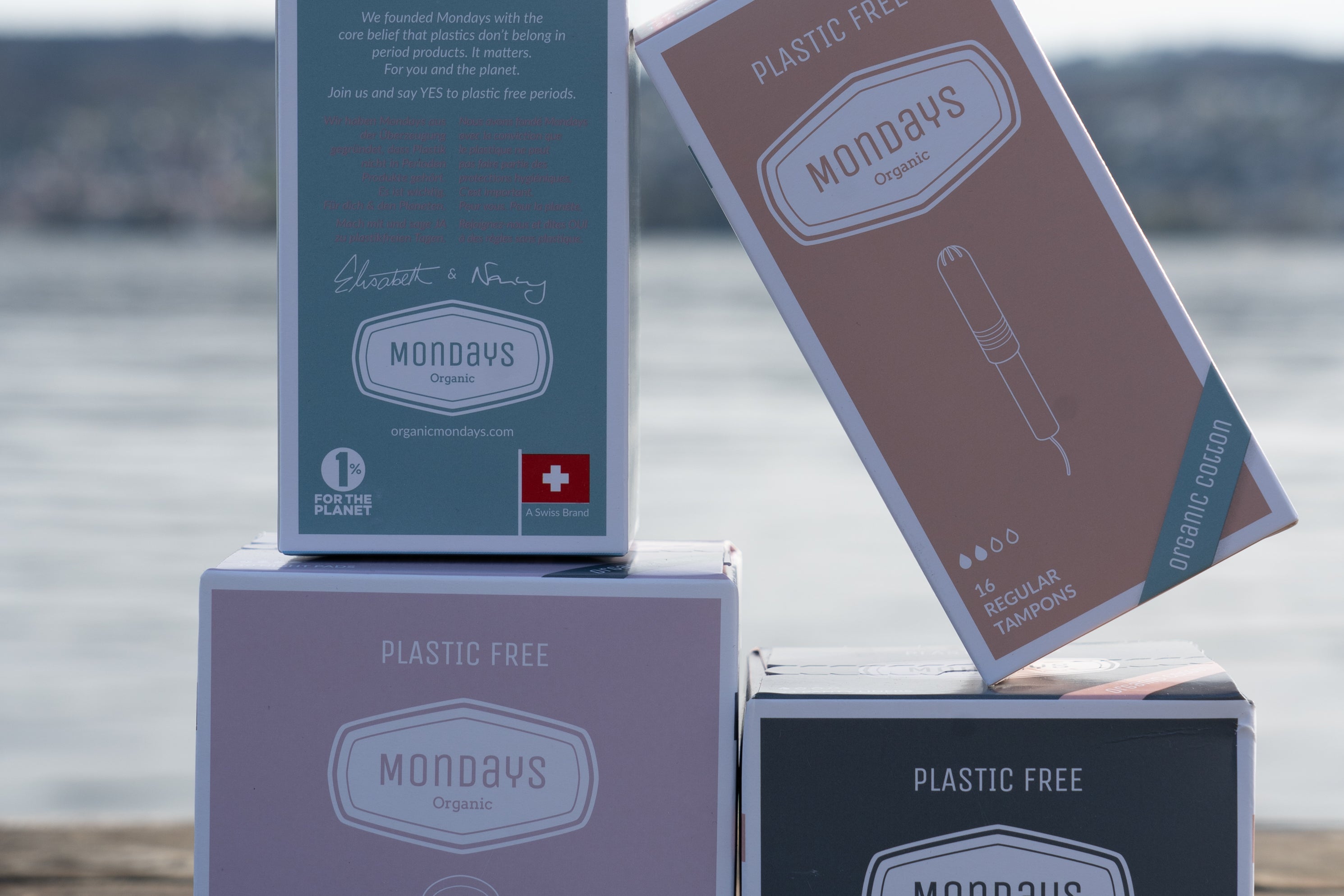
Les femmes que les entreprises s’efforcent d’attirer, de retenir et de promouvoir connaîtront toutes (souvent au sommet de leur carrière) la ménopause. Le manque de soutien, le manque d’éducation et la stigmatisation entourant la ménopause peuvent être particulièrement stressants et ont un impact direct sur la vie professionnelle quotidienne et donc, en fin de compte, sur les entreprises.
Commençons par comprendre clairement et correctement la signification de la ménopause et de la périménopause :
Ménopause
La ménopause correspond à l'arrêt des règles chez une femme. Cela se produit normalement entre 45 et 55 ans, mais cela peut survenir plus tôt. Cela affecte toute personne qui a ses règles. Cela marque la fin des années de reproduction et le début d’une nouvelle phase de la vie.
Périménopause
La ménopause ne survient pas du jour au lendemain. La périménopause est la période de transition entre la phase fertile de la vie et la phase stérile, après la ménopause, et elle varie d'une personne à l'autre. Cette période de transition dure en moyenne 4 à 6 ans mais peut durer 10 ans selon un récent rapport de Clue App.
75 % des femmes en périménopause/ménopause ressentent des symptômes et 25 % d'entre elles décrivent des symptômes graves.

Les statistiques ci-dessus soulignent à quel point il est important pour les employeurs de prendre en compte la périménopause et la ménopause sur le lieu de travail dans le cadre de toute politique de santé et de bien-être. La direction et les employés doivent être informés sur le sujet et apprendre à se soutenir mutuellement pour garantir que le lieu de travail soit adapté à son objectif, dans l'intérêt de toutes les parties prenantes.
Pourquoi sommes-nous, Organic Mondays, une entreprise qui aide les organisations à mettre en œuvre le programme Period Dignity (soins menstruels) en parlant de périménopause ?
Une politique d'entreprise en matière de ménopause est essentielle pour garantir que les employées bénéficient du soutien nécessaire pour donner le meilleur d'elles-mêmes, quel que soit le moment où elles se trouvent dans leur cycle de vie menstruel. Une partie de toute politique de santé et de bien-être des employés d’entreprise devrait consister à fournir des produits menstruels aux employés dans les toilettes du lieu de travail.
À l'approche de la ménopause, appelée périménopause, les femmes ne ressentent pas seulement, entre autres symptômes, le redoutable « brouillard cérébral » (lorsque vous devez écrire votre propre date de naissance, sinon vous l'oublierez) et une peau sèche, sèche TOUT en fait - de nombreuses femmes ont également des règles sensiblement plus abondantes, irrégulières et imprévisibles au fil des années 🩸

Soutenir les femmes en périménopause avec des produits menstruels dans la salle de bain
Périodes irrégulières et imprévisibles :
C’est un moment extrêmement important pour mettre à disposition des produits menstruels dans la salle de bain (au même titre que le papier toilette) car il est impossible pour de nombreuses femmes en périménopause de savoir quand arriveront leurs règles pendant cette phase de transition. Selon une étude récente de Clue portant sur les femmes âgées de 45 ans et ayant encore leurs règles, 1 sur 3 a signalé des irrégularités menstruelles. À l’âge de 52 ans, environ 1 femme sur 10 interrogée dans ce rapport avait encore ses règles.
Règles abondantes :
De plus, si elle a soudainement des règles beaucoup plus abondantes que ce à quoi elle est habituée, elle devra peut-être changer de serviette ou de tampon plus souvent que prévu et ne pas avoir les produits avec elle.
Une entreprise fournissant des serviettes et des tampons dans les salles de bains, tout comme le papier toilette, fera une énorme différence positive pour les femmes en périménopause, qui souffrent de suffisamment d'autres changements physiques et émotionnels difficiles sans le stress supplémentaire de ne pas avoir les produits menstruels dont elles ont besoin. ils en ont besoin.

L'impact de la périménopause et de la ménopause sur les carrières
Un rapport de septembre 2023 de Carrot Fertility a révélé que la ménopause a un impact significatif sur la carrière des femmes , 80 % d'entre elles la citant comme un défi sur le lieu de travail . Le rapport, intitulé « 2023 Ménopause sur le lieu de travail » , met en évidence la stigmatisation et l'âgisme évidents liés à la lutte contre la ménopause sur le lieu de travail.
Investissez dans vos femmes pendant cette phase de la vie et bénéficiez de la rétention de vos meilleurs talents féminins, car le meilleur reste à venir !
Comment soutenir les femmes en périménopause/ménopause sur le lieu de travail
Pour créer un environnement dans lequel les femmes se sentent en sécurité et soutenues, elles peuvent s'épanouir et donner le meilleur d'elles-mêmes à l'entreprise :
1. Éduquer et communiquer la politique sur la ménopause dans le cadre d'une politique de santé et de bien-être à l'échelle de l'entreprise
2. Mettre à disposition gratuitement des produits menstruels dans les salles de bain, tout comme le papier toilette
3. Soutenir et offrir une plate-forme d'entreprise aux champions de la ménopause et aux groupes de travail internes pour créer des forums, offrant des opportunités d'éducation et de conversations sécurisées.
4. Gérer la santé et les absences de manière équitable et flexible tout en sensibilisant les supérieurs hiérarchiques
Comprendre la périménopause et la ménopause est un sujet sensible et essentiel pour les entreprises

Intégrer la ménopause dans une politique de santé et de bien-être menstruel aidera certainement leurs employées à se sentir plus soutenues.
Il est important de noter que la gestion de la ménopause au travail peut être un sujet sensible. Malgré l’énorme impact de la périménopause et de la ménopause, moins de 20 % des femmes avaient un niveau élevé de compréhension de la ménopause avant l’apparition de leurs symptômes, selon le rapport Carrot Fertility.
La périménopause est un changement corporel qui, combiné au manque de connaissances, peut signifier que de nombreuses femmes se sentent dépassées et désorientées. De plus, chaque femme en périménopause peut ressentir une gamme de symptômes différents, allant des bouffées de chaleur et des sueurs nocturnes aux sautes d'humeur et à la fatigue. Il est important que les managers et les collègues fassent preuve de compréhension et d’empathie pendant cette période.
Dans l’ensemble, lutter contre la ménopause sur le lieu de travail constitue une étape importante vers la création d’un environnement de travail plus inclusif et plus favorable. En fournissant une formation et des ressources, les entreprises peuvent aider leurs employées à traverser cette période difficile avec confiance et dignité.
En savoir plus sur la périménopause et la ménopause
Les niveaux d'hormones changent, en particulier les œstrogènes, qui contrôlent le cycle menstruel. À mesure que les femmes vieillissent, les ovaires produisent moins d’ovules, les niveaux d’œstrogènes fluctuent et diminuent progressivement, ce qui entraîne des symptômes de ménopause. Mais cela ne se fait pas du jour au lendemain.
Cela peut prendre plusieurs années pour que cette hormone cruciale retombe à des niveaux bas, où elle reste, provoquant des changements dans le corps en cours de route.
Lorsque les ovaires cessent complètement de produire des ovules, la grossesse n’est plus possible et la ménopause survient.
Ce n'est que lorsque les règles n'ont pas eu lieu depuis 12 mois qu'une femme peut regarder en arrière et dire qu'elle est ménopausée (les dernières règles).
Quels sont les symptômes de la ménopause ?
La ménopause – et les années qui la précèdent – affectent chaque femme de différentes manières. Le cerveau, les règles, la peau, les muscles et les émotions sont tous affectés par la baisse des taux d’œstrogènes.
Il existe de nombreux symptômes possibles et les femmes peuvent en présenter certains, tous ou aucun - et pendant des durées variables.
Les symptômes les plus courants sont :
- saignement abondant ou irrégulier
- bouffées de chaleur
- sueurs nocturnes
- mauvaise humeur
- sécheresse vaginale
- problèmes de vessie
Un manque de mémoire et de concentration, généralement appelé brouillard cérébral, est également souvent mentionné (voir notre article récent sur les changements dans le cerveau au cours du cycle menstruel) , tout comme les articulations douloureuses, la peau sèche et le vagin.
Toutes les femmes ne présentent pas de symptômes, mais la plupart en présentent, environ 75 %. 25 % des femmes souffrent de symptômes graves qui impactent leur vie professionnelle. Les symptômes peuvent durer en moyenne 7 ans, et 1 femme sur 3 les ressent encore plus longtemps.
En savoir plus sur la ménopause et la périménopause
Il existe un certain nombre de ressources étonnantes pour vous renseigner sur la périménopause et la ménopause. Je vous encourage vraiment à y jeter un oeil et à inciter les gens autour de vous à en savoir plus :
Liens :
Documentaire Channel 4 de Davina Maccall
Blog de Clue sur la ménopause
L'association caritative ménopause #possédezvotreménopause



